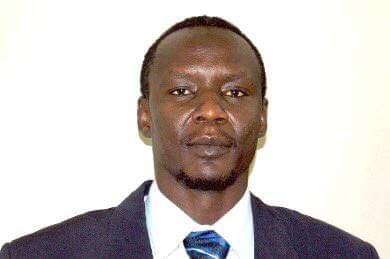Sudanese Journalist Abu Aagla Amasa has been released after a 48-hour detention by the Sudanese Army Intelligence Service at the headquarters of the Third Infantry Division in Shendi, River Nile State.
Amasa, who was set free on Sunday, posted on his Facebook page that his detention was due to his longstanding friendship with Mak Ubayd Mohammad Suleiman Abu Shotal, the leader of the Hamaj community in the Blue Nile.
He clarified that their communications were old and unrelated to the ongoing conflict between the Sudanese Army and the Rapid Support Forces (RSF).
Amasa’s detention sparked a wave of criticism regarding the press freedom in Sudan.
The Sudanese Journalists Syndicate condemned the detention, calling it a blatant violation of the press and media freedom. The syndicate warned against the continued infringement on journalists’ rights and the relentless targeting of the press, urging all parties to cease using detention to silence and intimidate independent voices.
The Syndicate noted that over 40 journalists, including five females had been detained by the Army Intelligence, RSF, and other entities, since the war broke out on April 15, 2023, jeopardizing the core principles of free press in the country.
The President of the Sudanese Journalists Syndicate, Abdul Munim Abu Idris, told Radio Tamazuj Monday that journalists in Sudan faced repeated arrests by both sides of the conflict.
He added that journalists underwent prolonged interrogations, searches of personal belongings, and unjustified detentions, which represent a stark violation of their freedom of movement and the international humanitarian law.
Idris identified some of the victims of the detentions as Abdul Rahman Warab, detained by the RSF since June 2023, and Saddiq Dallai, held by military intelligence in Al-Damazin since last May, with their whereabouts still unknown.
He emphasized that such practices had hindered the journalists’ ability to cover events in Sudan, leading to the spread of rumors and misinformation.
A member of the Sudanese Syndicate, Walid Al-Nur, told Tamazuj that the war had caused significant harm to media personnel. Numerous media institutions have been destroyed, and about 10 journalists have lost their lives while covering the clashes, the most recent being Ibrahim Shotaim.
Al-Nur added that the violations against journalists was muzzling voices and infringing on the freedom of expression. He affirmed that such actions have negatively affected many civilians who make decisions based on inaccurate information circulated by some media outlets, resulting in some losing their lives.




